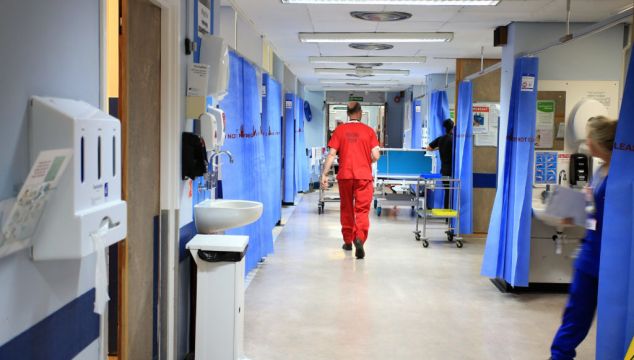The Irish Nurses and Midwives Organisation (INMO) has called the inaction from the HSE around overcrowding in hospitals 'inexcusable'
They said they have no choice but to consult with its members resulting from persistent hospital overcrowding which is not being taken seriously as a workers’ health issue by the HSE.
It comes as 457 patients are without a bed in Irish hospitals today, including 101 patients in University Hospital Limerick.
Sligo University Hospital was the next most overcrowded with 51 people on trolleys and Cork University Hospital which had 38 people.
Speaking about overcrowding issues, INMO general secretary Phil Ní Sheaghdha said:“The numbers of patients without a bed in Irish hospitals is completely unacceptable. For there to be 457 patients without a bed on a single day in the middle of June is not something we should accept as a given.
“The response thus far from the HSE, the Health and Safety Authority has been extremely lacking.
“The INMO has requested that the Emergency Department Taskforce meet as a matter of urgency three times and the response from the HSE has been inadequate.
"The fact that this important body has not convened in a time period where we have seen over 3566 patients on trolleys and a 76 per cent increase in Covid hospitalisations since the 4th of June is completely inexcusable."
“The Health and Safety Authority must act on the unsafe conditions are members are working in and patients are presenting to. We know that in some hospitals such as University Hospital Limerick that fire safety reports are not being adhered to.
"The dignity of patients is often diminished because of the conditions they are being treated in. Emergency Departments are pressure cooker environments leading to the physical and verbal assault of our members in some instances.
"The HSE has a duty to provide a safe environment for employees and patients and this just is not being adhered to in the vast majority of hospitals."
She said nurses are at the end of our tether, and they cannot provide the clinical care that is required.
Mr Ní Sheaghdha said they are "burnt out both physically and mentally and cannot continue at this pace."
"The slow reaction and at times hands-off approach from their employer will drive many nurses out of the profession," she said.







